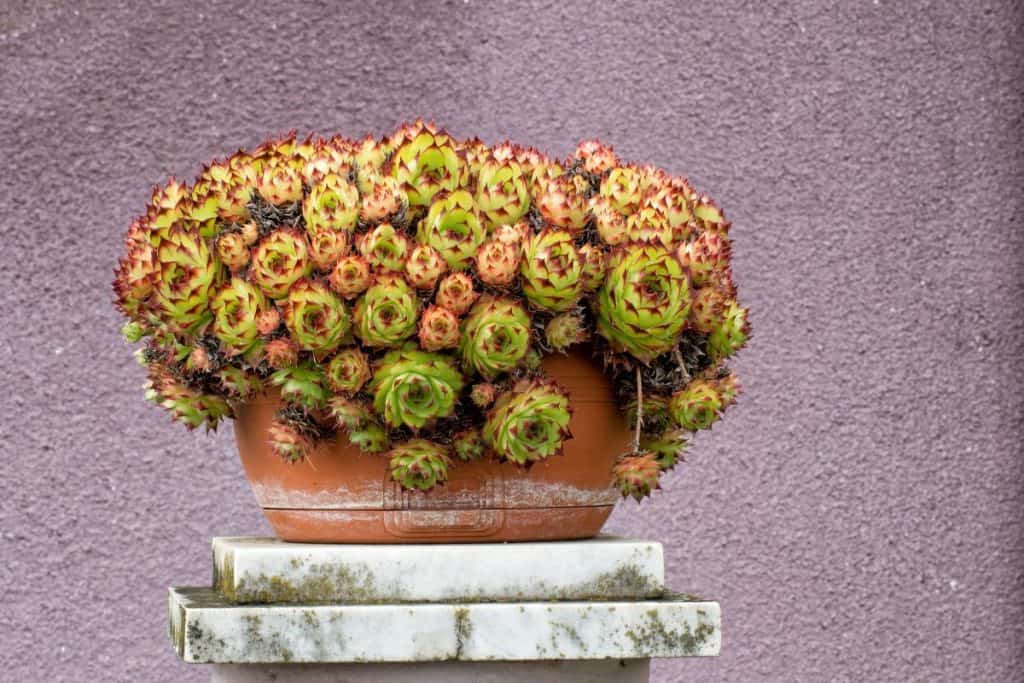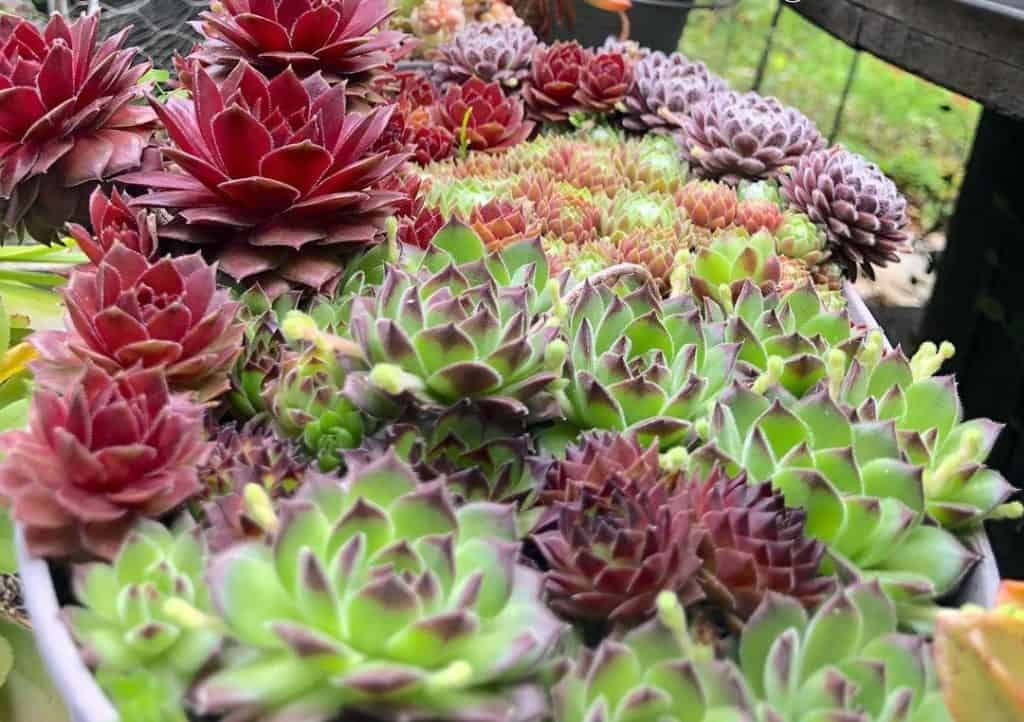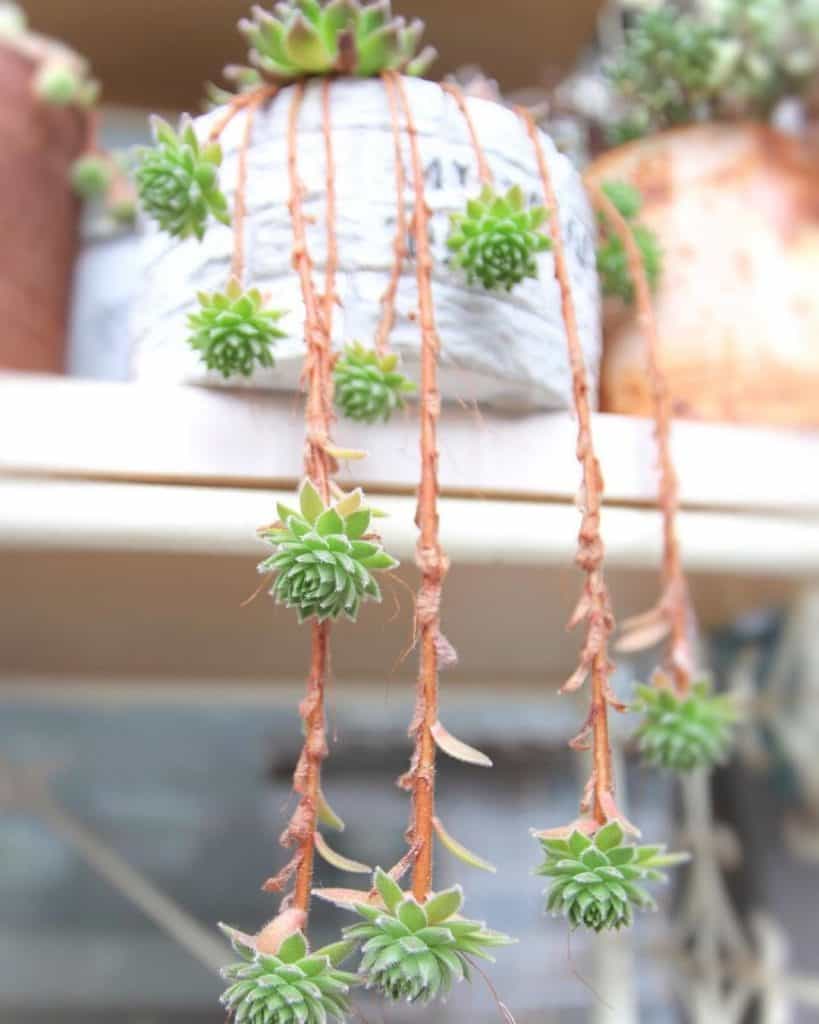Secrets to Keeping Your Hens and Chicks Thriving All Winter
Winter can be tough on plants, but not your cute little hens and chicks! These hardy sempervivums are champions at shrugging off frost and snow. With some easy care tips, you’ll have those chubby rosettes looking as plump and pretty as ever, even when Jack Frost comes knocking. Let’s dive into the secrets for keeping your hens and chicks thriving until spring!

Contents
Get Glowing with Grow Lights
While sempervivums can handle some shade, they still need plenty of bright light to look their best. As winter days get shorter, supplement with a grow light to keep them perky. Set it up about 6 inches above the plants for 12-16 hours per day. Your hens will be praising the sun in no time!
The Overwintering Water Routine
Hens and chicks are succulents, storing lots of water in their fleshy leaves and stems. That means they can go weeks without drinking during winter’s dry spells. Only water when the soil is completely dried out, then soak it thoroughly. Err on the too-dry side to prevent rot.
Soil Secrets for Sassy Succulents
These gals thrive in a very well-draining potting mix. A cactus/succulent blend with plenty of grit like perlite or sand is perfect. The grainy texture allows water to flow right through, just how hens and chicks like it. No more mushy feet!
Feed Me! The Right Winter Fertilizer
When spring arrives, give your sempervivums a boost with an appropriate fertilizer low in nitrogen. During winter’s slower growth, though, they’ll be happier staying on a diet. Too many nutrients now can make the plants weak and stretched out – not a good look!

Temperature and Humidity
Sempervivums seriously don’t mind the cold. Many varieties can take frosty temperatures down to 10°F (-12°C) without batting an eye! Just make sure to avoid drastic warm/cold swings. As for humidity, these ladies prefer it on the drier side, so indoor heating isn’t an issue.
Pests and Problems
The biggest threats are rot from overwatering, frozen soil/roots, and deer/rabbit nibblers. Check on potted plants after severe cold and move them if needed. Otherwise, just let frozen leaves be – they’ll bounce back in spring. These resilient plants seldom see pest issues.
Pruning Pearls of Wisdom
Shearing scissors aren’t needed! Simply remove any dead or diseased parts by gently pulling them off the main stem. Spent flower stalks can also be plucked away once they’ve dried up. Easy peasy.
Potting and Repotting
Only repot overgrown hens and chicks in very early spring as new growth emerges. Disturbing the roots mid-winter can shock the plant. When potting up, use that fast-draining succulent soil and make sure the pot has a drainage hole.
Baby-Making: Hens and Chicks Propagation 101

Behold the magic! Each little “hen” rosette is happily surrounded by a batch of cute baby “chick” offsets. Propagating these cuties couldn’t be simpler:
- Wait until spring when they’re actively growing new offsets
- Gently pull the offsets from the main plant once they’re 1-2 inches wide
- Allow the offsets to air out for a few days so the end calluses over
- Then simply pop them into a new pot or soil area, burying the end
- Water sparingly at first; soon you’ll have a fresh flush of hens and chicks!
So there you have it, winter plant parenting made easy! With a few small adjustments, your sempervivums will stay looking happy, healthy, and absolutely adorable until warm weather returns. Enjoy those perfectly plump hens and chicks all season long!
